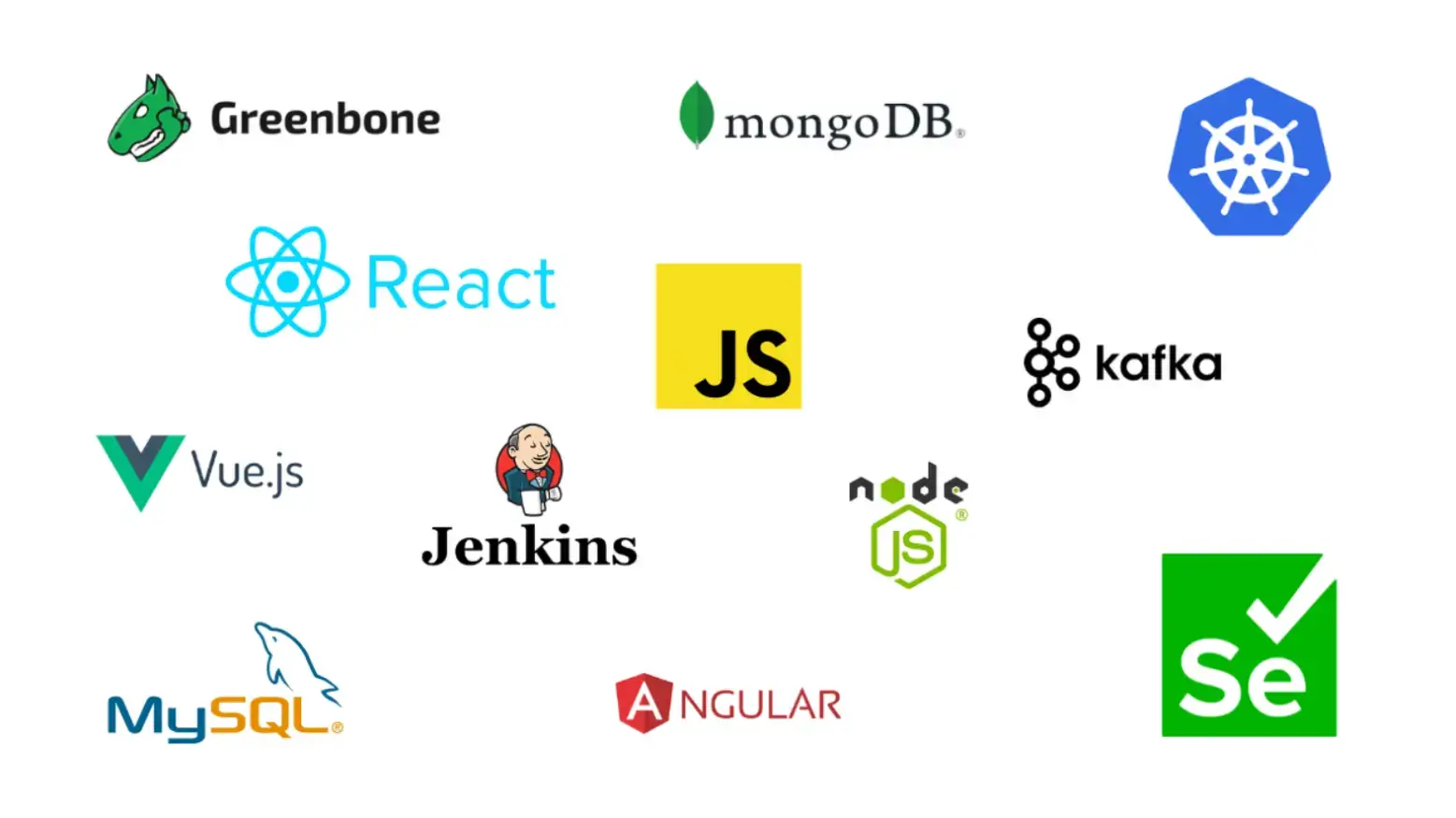Starting a tech startup isn't just about having the next big idea. While many dream of creating the next breakthrough app or game-changing software, success requires careful planning and smart decisions.
You need to know how to transform a simple idea into something people will actually want to use and buy.
Think of this guide as your startup checklist. We'll walk through the key steps that can help your company grow strong from day one.
Whether you're working solo or with a team, these tips to start a tech startup come from real startup stories - both successes and failures. By learning these basics now, you can avoid common pitfalls and build a stronger foundation for your business.
In this article:
- 9 Tips To Know Before Starting Your First Tech Company
- Validate your idea first
- Start with a solid MVP
- Understand your tech stack
- Secure your financial runway
- Choose the right development team
- Create a scalable architecture
- Plan user acquisition strategy
- Set up data & analytics
- Focus on cybersecurity early

Source: Freepik
9 Tips To Know Before Starting Your First Tech Company
1. Validate your idea first

Source: Freepik
Validate your idea by testing it with real users before investing significant time and money in development. This validation step is crucial when learning how to start a tech startup.
Start by identifying your target audience and scheduling face-to-face interviews or online surveys.
Ask specific questions about their pain points and the current solutions they use.
Don't just focus on friends and family - reach out to potential customers through LinkedIn, industry forums, or local meetups.
Set a clear validation goal: Aim to get at least 100 detailed responses or 20 in-depth interviews. Their feedback will help you determine whether your solution is truly needed and what features matter most.
2. Start with a solid MVP
The foundation of any successful tech product is a focused Minimum Viable Product that addresses one core user problem effectively.
For those starting a tech company, this focused approach saves time and reduces initial costs.
Begin by identifying your product's most critical feature - the one that solves your users' biggest pain point.
Focus on building and testing this core feature thoroughly before adding complexity. This focused approach saves time, reduces initial costs, and helps you gather meaningful user feedback faster.
Consider partnering with a reliable MVP development service agency for complex technical requirements or faster market entry. This can help streamline the app development process while maintaining high standards and scalability for future growth.
Studies show that 42% of startups fail because they build products without a clear market need, underscoring the importance of starting with a focused MVP to validate.
3. Understand your tech stack

Source: Created internally using Canva
Choosing the right technology stack is a critical foundation for your startup's success.
Beyond selecting programming languages and cross-platform development frameworks, you need to evaluate factors like scalability potential, development speed, and maintenance costs.
Consider your team's expertise, availability of developer talent, and long-term maintenance needs.
Whether building in-house or collaborating with development partners, your tech decisions will impact everything from development velocity to future growth capabilities.
A well-planned tech stack ensures your product can scale efficiently while keeping development costs manageable.
Using a SaaS management platform can help you streamline operations, optimize software usage, and gain better control over subscriptions and expenses.
To further reduce operational load and stay lean, many startups hire a virtual assistant to handle recurring admin tasks, manage software subscriptions, or assist with tech coordination during early-stage growth.
4. Secure your financial runway

Source: Freepik
Map out your startup's financial roadmap for at least 18 months before writing your first line of code.
Break down essential costs, including development expenses, server costs, team salaries, marketing budget, and operational overhead. Always add a 20-30% buffer for unexpected challenges.
Factor in the time needed to acquire your first paying customers and achieve revenue milestones.
Consider various funding options, such as bootstrapping, seeking angel investors, applying for grants, or applying to startup accelerators and venture studios.
Remember, successful tech startups often take longer than expected to generate sustainable revenue. Your runway should give you enough breathing room to iterate and adapt based on market feedback.
5. Choose the right development team

Source: Freepik
The quality of your development team directly impacts your startup's ability to build, iterate, and scale quickly in today's competitive market.
Start by defining the key roles you need, such as a full-stack developer, UI/UX designer, or specialized engineer. Then, consider the trade-offs between hiring full-time employees and working with experienced freelancers or development agencies.
Each choice impacts your budget, development speed, and product quality.
When building your team, prioritize problem-solving abilities, cultural fit, and technical skills. Look for developers who've worked on similar projects and understand startup environments.
A passionate, adaptable team that communicates well will help turn your vision into reality while navigating the inevitable challenges of startup development.
Additionally, training for CPR and First Aid can be an essential part of your team's professional development, ensuring that everyone is prepared to respond confidently in emergencies, which is crucial for maintaining a safe and productive work environment.
6. Create a scalable architecture
Focus on creating a flexible, modular architecture that can handle growth.
Choose technologies and frameworks that support easy scaling, implement clean code practices, and set up proper documentation from the start. Consider using microservices where appropriate, as they allow independent scaling of different product components.
Strike a balance between simplicity and forward-thinking. To prevent major technical overhauls in the future, fundamental decisions about security, performance, and maintenance should be carefully considered.
7. Plan user acquisition strategy

Source: Freepik
Before launching your product, define a clear path to reaching your first 1,000 users. Great tech alone doesn't guarantee adoption.
Map out your target user segments and identify where they spend their time online and offline. Instead of trying every marketing channel, focus on two or three that best match your user behavior.
Test different customer acquisition strategies with small budgets to find what works before scaling up your spending. Understanding proven acquisition strategies can help you optimize your approach.
Create a metrics-driven acquisition plan that tracks key indicators like customer acquisition cost (CAC), user retention, and conversion rates.
Build organic growth mechanisms into your product through referral programs, social sharing features, or content marketing.
Remember, sustainable growth comes from understanding and optimizing your user acquisition funnel at each stage.
8. Set up data & analytics
Data analytics is essential for measuring your product's success and guiding future development decisions.
Choose analytics tools that grow with your needs, from basic tracking to advanced user behavior analysis. Ensure your team can easily access and understand these metrics to make quick decisions.
Create dashboards that monitor both user behavior and system performance.
Track how users interact with features, where they drop off, and what leads to successful outcomes. These insights will guide your product development, marketing strategies, and business decisions.
Remember, measuring the right things early helps you spot problems and opportunities before they become critical.
9. Focus on cybersecurity early

Source: Pixabay
Security breaches can destroy user trust and sink your startup before it gains traction.
Implement essential security measures from day one, including data encryption, strong authentication, and regular security audits.
Stay compliant with data protection regulations like GDPR or CCPA based on your target market. Don't wait for a security incident to prioritize these measures.
Create a clear security protocol for your team, including password policies, access controls, and incident response plans. Being aware of common cybersecurity challenges helps you implement more effective preventive measures.
Regular security training for all team members, including non-technical team members, helps prevent common vulnerabilities. Investing in security early is far less expensive than dealing with a data breach that could harm your reputation and user trust.
Conclusion
Starting a tech startup is a challenging yet rewarding journey.
While these tips provide a strong foundation, remember that every startup's path is unique. Focus on validating your ideas, building quality solutions, and making data-driven decisions.
Most importantly, stay adaptable - successful founders know that starting a tech startup often involves learning and adjusting as you grow.
Take time to understand each aspect we've covered - from validation to security.
When in doubt, consider these tech startup tips as your roadmap. With careful planning, the right team, and persistent execution, you'll be better prepared to turn your tech vision into reality.
Frequently Asked Questions
1. How much funding do I need to start a tech startup?
For a basic tech startup, plan for a minimum of $50,000-$100,000 to cover 18 months of essential costs. This typically includes MVP development ($30-50K), basic marketing ($10K), tools/software ($5K), and operational costs ($5K), plus a 30% emergency fund.
2. Should I build everything in-house or outsource development for my startup?
If you have technical expertise and time, building in-house gives you more control but takes longer.
If you need to launch quickly or lack technical skills, working with MVP development agencies is faster but requires more initial capital. Choose based on your strongest resource - time or money.
3. When should I start thinking about user acquisition?
Immediately after validating your idea, before development starts.
Create your acquisition plan, identify your target channels, and set aside a marketing budget. This will ensure that you have users ready to test your MVP as soon as it launches.
4. How important is the tech stack decision for your startup?
Critical - it's a long-term decision that directly impacts your startup's success.
For example, choosing Node.js over Python affects your hiring options, development speed, and scaling costs. The wrong choice can significantly increase development time and maintenance costs.

Author Bio
Murtuza Kutub (Partner @ F22 Labs) is a product development and growth expert who helps founders and startups build and grow their products at lightning speed, with a track record of success. Apart from work, he loves networking & traveling.


